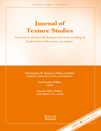Retracted: Improvement of Breadmaking Quality by Xylanase GH11 from Penicillium occitanis Pol6
Abstract
In this study xylanase from Penicillium occitanis Pol6, as a bread improver, was tested in whole-wheat bread. The purified xylanase termed PoXyn2 was used as an additive at a very small quantity (0.12 U/g flour basis) during mixing of wheat flour. The effects of xylanase addition on the fermentation stage and the final bread quality were analyzed. Remarkable decrease (8%) in water absorption and increase in dough rising (36.8%) were noticed. Final moisture content of the bread was higher (37.50%) than control (23.56%). Improvements in volume (17.8%) and specific volume (34.9%) were also significant. Sensory evaluation indicated better flavor, taste, softness and overall acceptability. Texture profile analysis confirmed the rheological changes. Firmness was decreased by more than twofolds. Improvements in cohesiveness and decline in springiness and gumminess were observed.
Practical Applications
The baking industry is shifting toward producing whole-wheat fiber-rich bread using enzymes such as xylanase, which can improve dough machinability and stability, oven spring, loaf volume, crumb structure and shelf life. This hypothesis is supported by determining the functional and rheological properties of supplemented dough with purified Penicillium occitanis xylanase. The improved bread was assessed by a panel of five judges for sensory evaluation. Furthermore, significant improvement in textural properties was noticed.




